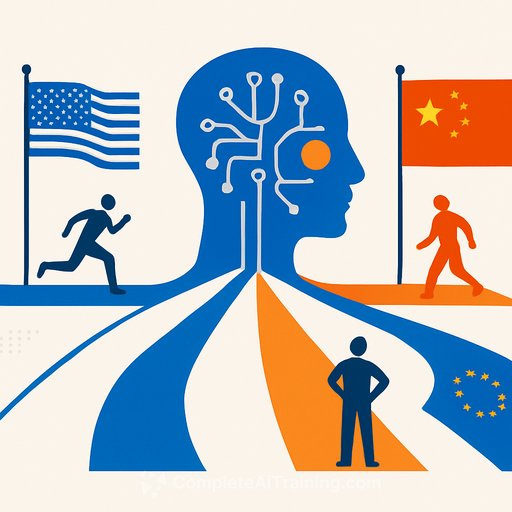Victor Omoboye Appointed GAFAI Global AI Delegate
The Global Alliance for Artificial Intelligence (GAFAI) has appointed Nigerian Data Scientist and AI research author, Victor Omoboye, as a Global AI Delegate. The recognition centers on his leadership and commitment to responsible, human-centered artificial intelligence.
For scientists and research teams, this points to a tighter focus on safety, evaluation standards, and social impact across AI systems. It also brings stronger representation from Africa into global AI conversations-useful for building methods that work across cultures, datasets, and deployment contexts.
Why this matters for science
- Stronger emphasis on safety-by-design: dataset documentation, red-teaming, interpretability, and socio-technical evaluation baked into research cycles.
- Better connection between principles and lab practice-clear steps researchers can apply in data collection, model training, and human oversight.
- More inclusive perspectives in benchmarks and metrics, addressing performance gaps across languages, domains, and communities.
- Momentum for open science: reproducible pipelines, model cards, and transparent reporting of failure modes.
- Cross-sector collaboration that helps translate findings into standards and policy without slowing core research.
What researchers can do now
- Map your workflows to the NIST AI Risk Management Framework to structure risk identification, measurement, and mitigation stages. NIST AI RMF
- Use the OECD AI Principles as a reference for governance, transparency, and accountability across your projects. OECD AI Principles
- Adopt data statements, consent checks, and lineage tracking to improve dataset quality and trust.
- Include fairness metrics, stress tests, and meaningful human oversight in your evaluation suite.
- Publish evaluation protocols and known limitations alongside results; make negative findings visible so others don't repeat the same mistakes.
Impact you can expect
- Clearer guidance on audits, documentation, and human-centered evaluation criteria that labs can implement without heavy overhead.
- Increased collaboration opportunities across universities, industry, and civil society on safety and ethics studies.
- Greater focus on multilingual and low-resource research directions, helping reduce skew in datasets and model behavior.
Build capability inside your lab
- Create a lightweight review step for every new dataset and model release: provenance, consent, risks, and mitigation notes.
- Set a standing red-team session for critical models. Track issues, fixes, and retests over time.
- Standardize reporting (model cards, data cards) so your findings are reusable and easy to audit.
- If you're scaling training in these areas, see curated learning paths by job role: Complete AI Training - Courses by Job
Congratulations to Victor Omoboye on the GAFAI appointment. It's a clear signal that responsible, human-centered practice is moving from slogans to concrete research habits-and that's good for science.
Your membership also unlocks:





